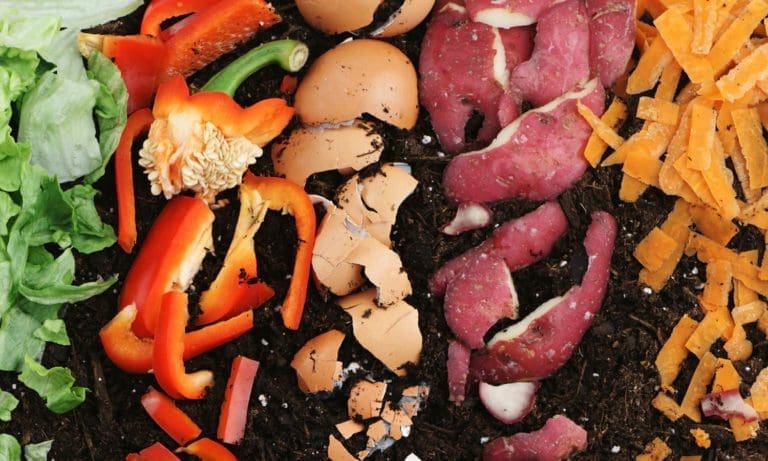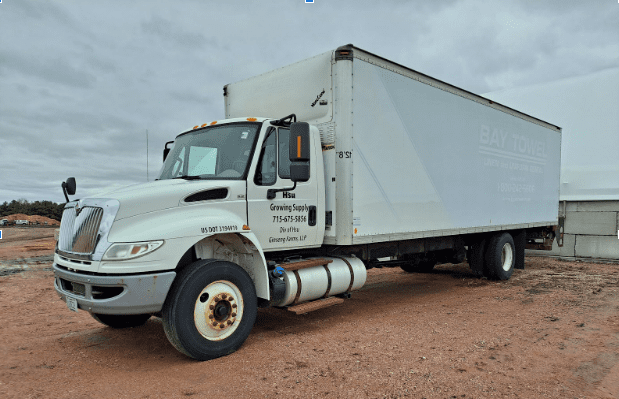Free local delivery for bagged and bottled items in our local delivery area for orders $75 or more.
Free local delivery for bagged and bottled items in our local delivery area for orders $75 or more.

Food waste recycling doesn’t have to be a smelly or dirty affair if done right. An important thing to remember is to keep the bins shut tight. We recommend using a bungee cord to keep the lid on the bin shut tight. When the bins are emptied they should be rinsed out well.
When you leave the lids open, flies find the food waste, lay eggs, and they hatch into maggots. It’s worse in hot weather with each increasing day. No one wants to deal with maggots, especially us when we pick up the bin and dump it into our windrows at the end of the 7-day cycle. Please keep bungee cords on tight after use and wash out bins when empty!
There are a number of videos on YouTube with hints and advice about using natural remedies to cut down on flies around the bins. When keeping the area clean and lids shut tight, larger critters are extremely rare.
Hsu Growing Supply accepts pre-consumer and post-consumer food, which means we accept food that’s left over from the kitchen and leftovers from the tables. For restaurants, how they handle food waste is ultimately a staffing issue.
Composting is the natural aerobic decomposition of organic matter into a nutrient rich soil amendment. It is composed of “greens”, such as grass clippings or fruit and vegetable scraps, that provide nitrogen, and “browns”, like dead leaves or paper products, that provide carbon. An ideal ratio for good compost is 3 parts brown to 1 part green. This results in a carbon to nitrogen ratio of 25-30:1 for an ideal compost blend.
Lots of reasons!
There are a few ways to go about this. The two main methods are by using a compost tumbler or building an enclosure for your compost pile. Compost tumblers are nice for keeping your food waste out of sight, away from critters, and cuts down on odors. They are good for people that live in close proximity to their neighbors, that are looking to compost on a small scale, and won’t be adding a ton of yard waste. We sell compost tumblers here at Hsu Growing Supply, so stop by if you’re looking to get started! The other option, an open compost pile, is good for people that are creating a larger amount of food and yard waste. It can be done by building a three sided enclosure out of wood or metal fencing that allows for good airflow. You can add your browns and greens right into it and the compost will do its thing. It requires you to turn it occasionally so that everything gets a chance to be in the middle of the pile to decompose evenly, but this can be done easily with a pitchfork or shovel. Depending on what you’re putting into it, how much moisture the mixture has, and the amount of direct sunlight it gets, you can have garden-ready compost in two to ten weeks, depending on how closely resembling soil you want your compost to be. Both of these options are great for anyone looking to reduce the amount of food waste they send to the landfill or wanting to add more organic matter to their lawn or garden.
Our composting business began through our Ginseng Company. Paul Hsu, our founder, found that ginseng grows best in the presence of leaf mold, which is created when the leaves of hardwood trees fall to the ground and decompose. He wanted to add this fertile amendment to his field grown ginseng, and began collecting leaves in the Wausau area and composting them in windrows. He found that other growers, gardeners, and farmers also appreciated the fertility that the compost provided and began selling it commercially. Now we accept yard waste from the area, as well as leaves that are collected off of city streets to create our leaf compost. We also accept food scraps from residents and have a pickup service for local restaurants and coffee shops. Now, in addition to creating a fertile soil amendment, our goal is to divert food waste out of the landfills and help community members contribute to a circular economy rather than a disposable one.
Added to cart
It looks like you are purchasing Ginseng Chemicals.
Due to restrictions and regulations, we are limited in the shipping of Ginseng Chemicals.
Don't hesitate to get in touch with our office at 715.675.5856 if you have any questions.
Abbotsford (54405)
Colby (54421)
Edgar (54426)
Hewitt (54441)
Marshfield (54449)
Spencer (54479)
Stratford (54484)
Unity (54488)
Athens (54411)
Marathon (54448)
Wausau (West) (54401)
Plover (54467)
Stevens Point (East) (54482)
Stevens Point (West) (54481)
Antigo (54409)
Aniwa (54408)
Brokaw (54417)
Merrill (54452)
Wausau (East) (54403)
Birnamwood (54414)
Eland (54427)
Elderon (54429)
Hatley (54440)
Kronenwetter (54455)
Mosinee (54455)
Ringle (54471)
Rothschild (54474)
Schofield (54476)
Weston (54476)
Wittenberg (54499)

To ensure efficient service, please print out your order number and bring it into our retail store for your pickup. If you have any questions, or would like to schedule delivery, call us at 715-675-5856.